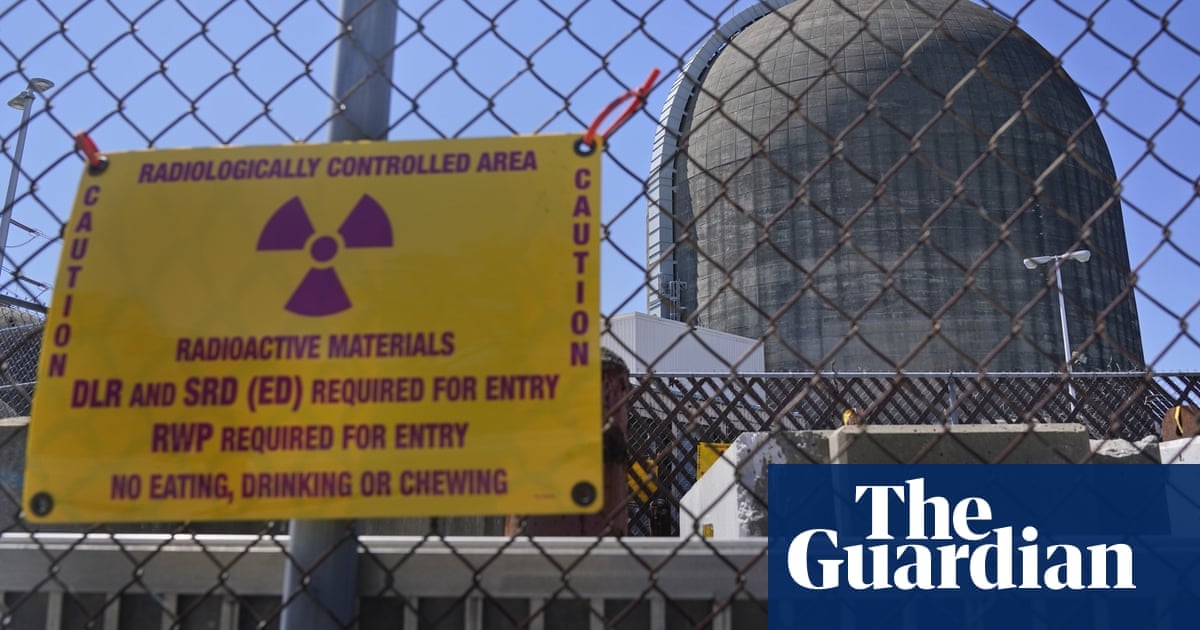Shuttering of New York facility raises awkward climate crisis questions as gas – not renewables – fills gap in power generation
When New York’s deteriorating and unloved Indian Point nuclear plant finally shuttered in 2021, its demise was met with delight from environmentalists who had long demanded it be scrapped.
But there has been a sting in the tail – since the closure, New York’s greenhouse gas emissions have gone up.
Castigated for its impact upon the surrounding environment and feared for its potential to unleash disaster close to the heart of New York City, Indian Point nevertheless supplied a large chunk of the state’s carbon-free electricity.
Since the plant’s closure, it has been gas, rather then clean energy such as solar and wind, that has filled the void, leaving New York City in the embarrassing situation of seeing its planet-heating emissions jump in recent years to the point its power grid is now dirtier than Texas’s, as well as the US average.



Specifically this plant?
I’m hoping by “gas” you mean natural gas and not gasoline, but yeah, natural gas is better than an untrustworthy reactor because of the risk involved. Not forever, but right now it’s better than if we kept running a plant that will eventually have catastrophic failure.
Once turbines are spun up, it all pretty much runs itself. If you automated the oil purifiers it could conceivably run for years even decades on its on it’s own and not have any issues.
But we don’t take that chance, because something might go wrong.
The quality of this plant was shit, so the potential risk outweighed the known benefits and it needed shut down.
That doesn’t mean nuclear power is bad.
It means this one specific plant is bad after 60 years of operation and being one of the first plants constructed. It doesn’t mean we can’t build a modern plant that’s built to last and maintain it.
Shutting it down even if that means a temp return to fossil fuels for this one relatively tiny area for a few years is worth avoiding a nuclear meltdown a couple miles upstream of NYC…
It’s basic risk assessment
According to you. I believe the opposite.
We need to measure the actual dangers (in terms of lives lost, illnesses, etc.) and risks (in terms of probability of various outcomes) involved in order to arrive at an informed conclusion regarding this issue.
Natural gas kills people every day. This plant might, hypothetically, kill people in the future. Barring strong evidence that the second outcome is dramatically larger or more likely, the default should be to avoid killing people now.
Welp…
The US government spent well over six figures teaching me nuclear engineering…
Seriously, it’s fucking expensive.
So if you think this comes down to a matter of opinion. That’s fine.
Feel free to keep thinking you’re the expert. It legitimately doesn’t matter in the slightest, I was just trying to help you understand.
Well I’m afraid you’re doing a very poor job of it. If you are truly an expert on this topic it should be easy for you to provide some research that supports your position here. If there is any. Or you can just assert you’re a brilliant expert who should be unquestioningly believed on the basis of a comment on Lemmy. We’ll have to see which is the more effective educational technique.
It does matter, unqualified opinions holding equal weight with expert opinions/analysis is a serious issue in society.
First we have no way of confirming that this person is really an expert and considering they have shown no real advanced knowledge of the topic, count me skeptical.
Second, this completely misunderstands the nature of science and expertise. Science works because it is a process that uses documentation of evidence to arrive at logical and probabilistic conclusions. Experts are not magical unicorns that spray forth truth. They are experts because they have a deep familiarity with the research in their field. Their roles is to share this research, not boldly state opinions and then fall back on their authority when challenged. That is the rhetoric of demagogues.
In fact, I think it is precisely this misunderstanding about the nature of expertise that has led to the problem you’ve described but misunderstood.
He absolutely isn’t an expert. He may very well have done what he claims, but if so the military training he received simply teaches him to diligently read from a book and follow the steps listed there. He’s no more an expert based on this training than someone is an artisan baker for following the recipe on the back of a box or Betty Crocker.
On a large scale, sure.
But I’m only going to sink so much time into explaining stuff for one person.
On Reddit it was different because 10s even 100s of thousands of people might read a chain of comments.
Smaller communities tho, if someone doesn’t get, whatever.